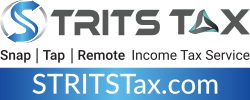IRS delays Form 1099-K $600 reporting threshold
The IRS on Friday announced a delay in the $600 reporting threshold for third-party settlement organizations, which had been in effect for the 2022 calendar year. This push back for one year its implementation for a law requiring peer-to-peer payment platforms such as Venmo, PayPal to report aggregated payments of $600 or more. As a result, the IRS says third-party settlement organizations will not have to report tax year 2022 transactions on a Form 1099-K, Payment Card and Third Party Network Transactions, to the IRS or the payee for the lower, $600 threshold amount that was enacted as part of the American Rescue Plan Act (ARPA) of 2021, P.L. 117-2.
Until the changes enacted by ARPA, third-party settlement organizations were allowed a de minimis exception to filing Form 1099-K with respect to payees with 200 or fewer such transactions during the calendar year with an aggregate gross amount of $20,000 or less. ARPA amended this de minimis amount to $600, with no minimum number of transactions, effective for calendar years beginning after Dec. 31, 2021.
“The IRS and Treasury heard a number of concerns” about the changes, acting IRS Commissioner Doug O’Donnell said in a Friday statement. “To help smooth the transition and ensure clarity for taxpayers, tax professionals and industry, the IRS will delay implementation” of the new rule, the statement said.
“The additional time will help reduce confusion during the upcoming 2023 tax filing season and provide more time for taxpayers to prepare and understand the new reporting requirements,” he added.
Transfer more than $20,000? You’ll still get a form.
Even though the delay means that people during the 2023 tax season will only get tax forms if they meet the earlier guidelines of selling more than $20,000 and making more than 200 transactions in a year, anyone who makes a profit from any sort of income is legally required to pay tax on that money.
That means even if people don’t receive a tax form, they are still required to report the income and pay tax on it. However, the IRS underscored that personal transactions, such as repaying a friend for a shared meal, aren’t meant to be tracked by the now-delayed rule on reporting $600 in side-gig income.
“The law is not intended to track personal transactions such as sharing the cost of a car ride or meal, birthday or holiday gifts, or paying a family member or another for a household bill,” the IRS emphasized Friday.
This is a developing story.



 . Thank you for everything :)
. Thank you for everything :)